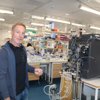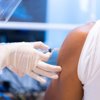Fritextsökning
Artiklar per år
Innehållstyper
-

“Don’t postpone the transition to IVDR”
Operators who have not yet started to adapt to the requirements of the new EU IVDR regulation are running out of excuses. This is the opinion of Helena Dzojic, Head of Unit at the Swedish Medical Products Agency, who continues to persistently spread her
-

To build trust, one must be able to say “I don’t know” – whether human or AI
Will AI strengthen or break down trust? It depends on whether we can understand and accept its limitations, and our own, writes Sarah Lidé in a column.
-

KI’s new super machine measures brain activity in real-time – “A very expensive hairdo”
Using brand-new, super-advanced equipment, researchers at Karolinska Institutet can now measure brain activity in real-time, with higher resolution than previously possible. “This opens up fantastic opportunities”, says brain researcher Daniel Lundqvist.
-

Astra Zeneca-samarbete ska gynna start up-bolag i Sverige och Norge
Ett nytt samarbete har ingåtts mellan Astra Zeneca, Oslo Cancer Cluster och Oslo Science City. Syftet är att främja kontakter och samarbete mellan norska och svenska forsknings- och innovationsmiljöer.
-

Danska life science-industrin står för rekordhög export
Den danska exporten av life science-produkter har ökat explosionsartat, med en tillväxt på 227 procent sedan 2008 och utgjorde 2023 så mycket som 19 procent av landets totala varuexport.
-

Rising interest in CRISPR treatments
Treatments using CRISPR technology are emerging as one of the hottest medical trends in the United States – and the FDA is doing its best to promote the development.
-

Decades of research destroyed at KI – a hacker attack cannot be ruled out!
Years of research, together with half a billion Swedish krona, went up in smoke when the freezers at Karolinska Institutet overheated. The breakdown has now been reported to the police.
-

Anna Törner: “My quantified life”
“The expression ‘you can’t see the forest for the trees’ feels newly relevant in the context of wearables. One can easily get caught up in the idea that the more we measure, the more we know,” Anna Törner writes in a column.
-

Failed to read the fine print – lost his life’s work
A celebrated CEO and co-founder of a pioneering lab company one moment – the next, fired, kicked out and written out of the company’s history. This is the story of a Swedish entrepreneur who was going to raise US venture capital to strengthen his company but lost his life’s work instead.
-

Study: Popular diabetes drug may be effective against liver disease
After its success in diabetes and weight loss, a new potential therapeutic area has been identified for Ozempic and other GLP1 analogues. A new study links the drug type to a reduced risk of liver damage.
-

”Information security must become part of the Swedish life science strategy”
Sweden needs knowledge security to stand strong in the global competition, writes Björn Ursing in an opinion article.
-

Unexpected study results on testosterone – no reduction in fracture risk
Testosterone treatment is known to increase bone density and bone quality. However, a study now suggests that supplementation with the male sex hormone does not reduce the risk of fractures, but rather increases it. The researchers behind the study were surprised by this result.
-

Nytt scale up-program för life science-företag startar i Sydsverige
Inkubatorn Smile tillsammans med Medicon Village vill hjälpa bolag att nå sin fulla potential. Nu har de startat ett scale up-program för etablerade life science-företag.
-

A new special edition and a new event in Copenhagen – This is happening at Life Science Sweden 2024
The new year brings new features for the readers of Life Science Sweden.
-

Redsense grundare har avlidit
Patrik Byhmer, grundare av Redsense Medical och aktiv i flera andra medicinteknikbolag, har avlidit.
-

Ingrid Lönnstedt: What does the p-value mean?
The smaller the better, and preferably smaller than 0.05. A p-value smaller than 5% means that the treatment effect is statistically significant at 5% significance level. But what does that mean? Read Ingrid Lönnstedt´s column to learn more.
-

The International Vaccine Institute’s office in Sweden is expanding
The International Vaccine Institute’s Stockholm office has been open for over a year. During the past year, training programmes and projects have been launched, says Anh Wartel, Head of the office.
-

Samuel Lagercrantz: We are currently seeing medical breakthroughs in these areas
Samuel Lagercrantz, Editor in Chief of Life Science Sweden, lists three medical fields in which we are currently seeing major breakthroughs and two fields in which we can see some long-awaited positive developments.
-

Mathias Uhlén’s protein atlas is recognised as a global resource
The Human Protein Atlas is the first database in Sweden to be designated a Global Core Biodata Resource. According to Mathias Uhlén, this is a quality hallmark and an opportunity for additional collaborations.
-

A vaccine the world is waiting for: “It can change the lives of many”
A Solna laboratory is developing a vaccine that could save the lives of countless children in low- and middle-income countries. “Working on something that can make a difference for many people is important to me,” says Christine Hägglund, Laboratory Manager.
-

Business Sweden: “Companies have a lot to offer in data-driven precision medicine”
Data-driven precision medicine can potentially solve major healthcare problems, states Business Sweden in a new report on the subject.
-

The art of building a biologic drug
The first biosimilar from Xbrane Biopharma was launched earlier this year, and several more are under development at the company’s facility in Solna, Sweden. “We do everything in-house ‒ from DNA fragments to a final process,” says David Vikström, Chief Technology Officer at the company.
-

Novo Nordisk sues compounding pharmacies in the US
Novo Nordisk is suing compounding pharmacies in Florida, USA, because the company claims to have found impurities in the active ingredient in the obesity drug Wegovy.
-

Study: Vaccination linked to lower risk of post-COVID
The risk of developing post-COVID after a COVID infection was reduced in vaccinated people, according to a new study from the University of Gothenburg.